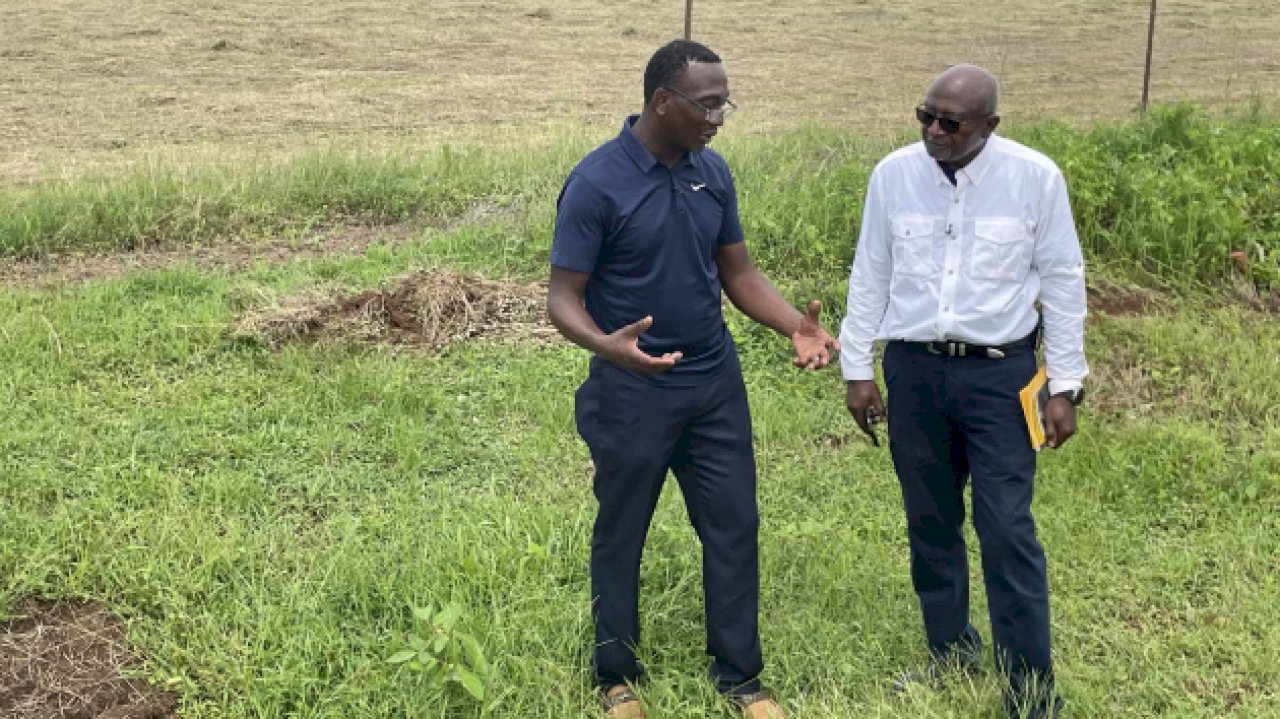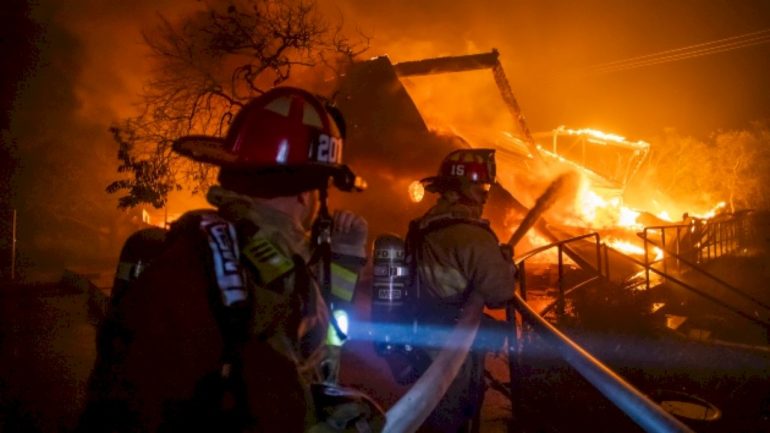Listeners:
Top listeners:
-
 play_arrow
play_arrow
94.3 Rev-FM The Rock of Texas | Where Texas Rocks
-
 play_arrow
play_arrow
99.1 The Buck Texas Country's Number 1 Country
-
 play_arrow
play_arrow
103.7 MikeFM Your Texas Hill Country Mix Tape
-
 play_arrow
play_arrow
KERV 1230 AM
-
 play_arrow
play_arrow
JAM Sports 1 JAM Broadcasting Sports 1
-
 play_arrow
play_arrow
JAM Sports 2 JAM Broadcasting Sports 2
Alabama community demands accountability for flood damage before Biden’s term ends

(SHILOH, Ala.) — At a recent church service in Cleveland, a group of visitors from a rural Alabama community nearly 900 miles away, including pastor and business owner Timothy Williams, joined congregants in singing the spiritual “I Don’t Mind Waiting.”
Williams has grown used to waiting.
After six years of frequent flooding, two presidential administrations and numerous reassurances from top officials, homeowners like Williams who live in the majority-Black Shiloh community say they are still waiting for state and federal agencies to make them whole.
Now, with the Biden administration ending Monday, they feel they are running out of time.
“The longer they put us on hold, things are getting worse and worse,” said Williams, who has been advocating for Shiloh since 2018, after community members say a project by the Alabama Department of Transportation (ALDOT) to widen an adjacent highway led to flooding on their properties.
When the state denied responsibility for the flooding, community leaders turned to the federal government for help. In September 2022, the U.S. Department of Transportation’s Federal Highway Administration opened an investigation into their concerns.
The administration says it aims to complete investigations within six months, but after a year with no resolution, Shiloh residents focused their efforts on reaching the top transportation official in America: U.S. Transportation Secretary Pete Buttigieg.
Shiloh residents became hopeful last spring when Buttigieg traveled to their community to see how runoff from the expanded highway drained onto their properties. He toured the historic community, listening to residents and telling them Washington would make things right.
The people of Shiloh say they were optimistic about what was to come, but when the federal investigation came to a close in October — more than two years after it began — the resulting Voluntary Resolution Agreement with ALDOT fell short of their expectations.
The deal required the state to mitigate future flooding in Shiloh, but it did not address existing property damage. It also did not assign blame for the flooding, raising questions as to whether any government entity is liable for compensating the residents for their losses.
“We are closely coordinating with the Federal Highway Administration on our efforts to follow through with the terms of the Voluntary Resolution Agreement,” ALDOT spokesperson Tony Harris told ABC News.
On the brink of yet another administration change, Williams wants Buttigieg to commit more resources to Shiloh in his final days in office.
“We want him to give us a binding written agreement that will cover the damages of the people’s homes and their properties and make the people whole,” Williams said. “That’s all we’re asking him to do and he can do that.”
A spokesperson for the U.S. Department of Transportation, however, said the secretary cannot meet this demand.
“Congress has not authorized any programs or funding for DOT that can provide emergency relief directly to communities experiencing hardship, so this whole-of-government approach is critical to help the Shiloh community access federal assistance that is not available through DOT alone,” the spokesperson told ABC News.
The flooding in Shiloh has consequences ranging from transportation to housing to environment, spanning the jurisdictions of a web of federal agencies. Some of these departments are involved in a task force led by the U.S. Transportation Department to identify resources available for Shiloh, an Environmental Protection Agency spokesperson told ABC News.
“EPA shared all funding opportunities and technical assistance available to the community,” the spokesperson wrote, adding that Shiloh community members applied for an EPA grant program in November.
Since the Voluntary Resolution Agreement did not assign liability for the flooding – the responsibility for finding government funds to fix the flood damage has largely fallen to the Shiloh community members. They now say they’ve been wading through red tape while their homes fill with water.
With the clock ticking toward another Trump administration, Shiloh community leaders are worried they’ll be left behind. They aren’t waiting for federal agencies to come to them anymore.
In December, Williams and his daughters traveled from Alabama to Ohio, where Buttigieg was scheduled to speak before the City Club of Cleveland.
In his address, Buttigieg discussed the accomplishments of his administration, including tackling infrastructure inequities in vulnerable communities.
“Many communities had transportation projects done to them rather than with them, often because they lacked the wealth or political power to resist or reshape them,” Buttigieg said.
Listening closely alongside the Williams family were some of their supporters: Shiloh-area native Dr. Robert Bullard, known as the “father of environmental justice” for his pioneering research, and representatives from the Sierra Club.
“The point of transportation is to connect, and yet there were so many places where transportation functioned to divide, sometimes contributing to racial and economic divisions,” Buttigieg told the audience. “We can do something about it, and we are.”
In the case of Shiloh, however, what exactly can be done and who should do it remains unclear. All the while, the flooding continues.
When asked by ABC News if he would meet with the Shiloh families who’d come to Cleveland, Buttigieg said he “would want to take that up directly with them.”
“We’ll continue to do everything we can, both within and beyond any kind of formal and official steps, to try to support that community because I’ll never forget what they’re going through,” Buttigieg said.
After they were denied another meeting with the secretary, Williams and Bullard put together a petition with roughly 5,000 signatures demanding a binding agreement to cover damage to residents’ properties.
On Tuesday, the group traveled another 900 miles, heading to Washington to deliver their petition directly to the U.S. Transportation Department before Buttigieg’s term ends.
“We want to see a victory,” Bullard said. “How this community overcame all odds and got the resources from the federal government to make them whole.”
Sierra Club Executive Director Ben Jealous joined the group to call for justice in Shiloh.
“Their community’s been turned into a drainage ditch by the Alabama Department of Transportation with U.S. Department of Transportation dollars,” Jealous said.
After relentless flooding and tireless advocacy, Shiloh’s 150-year legacy still hangs in the balance. While Washington politics churn on, their homes continue to sink and runoff drowns their generational wealth.
Bullard stressed that there is still time for Washington to act.
“It’s already been two administrations that have allowed this to happen,” Bullard said. “This should not — and must not — bleed into a third administration.”
ABC News Senior National Correspondent Steve Osunsami contributed to this report.
Copyright © 2025, ABC Audio. All rights reserved.
Written by: ABC News
-
Top popular

Ingram man charged with murder after fatal shooting

Kerr Crime Stoppers offering reward up to $5,000 for information in last week’s non-viable school threat

KISD asks parents to communicate with children about words and actions after ‘copy cat’ threat note found at middle school

City of Kerrville Parks and Recreation reminds citizens that a Red Flag Warning is in effect until further notice

City of Kerrville says that May 7 General and Special Elections will proceed



